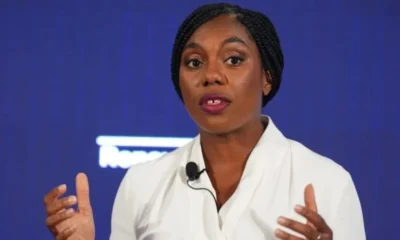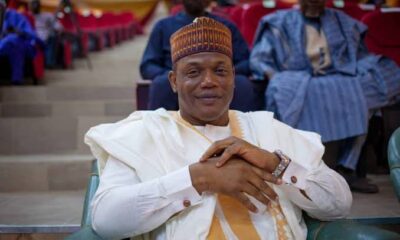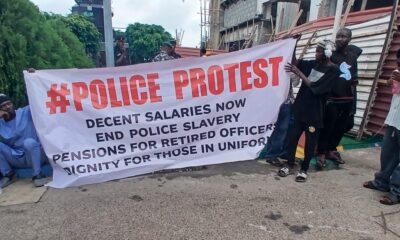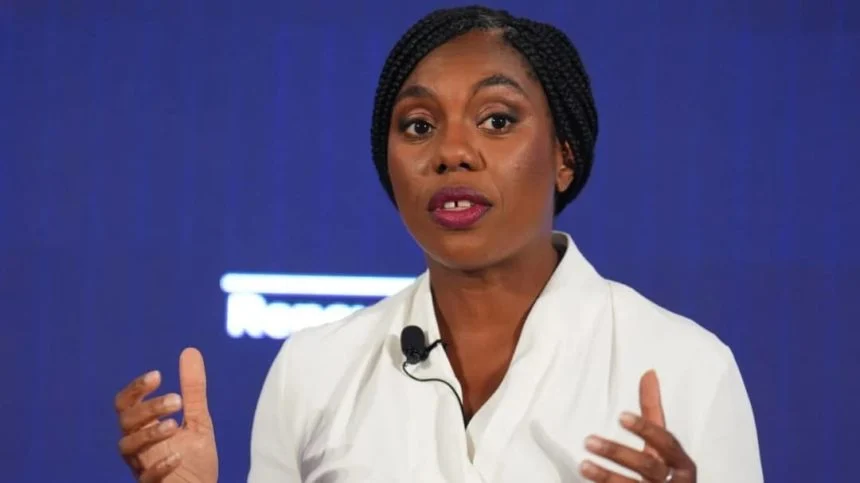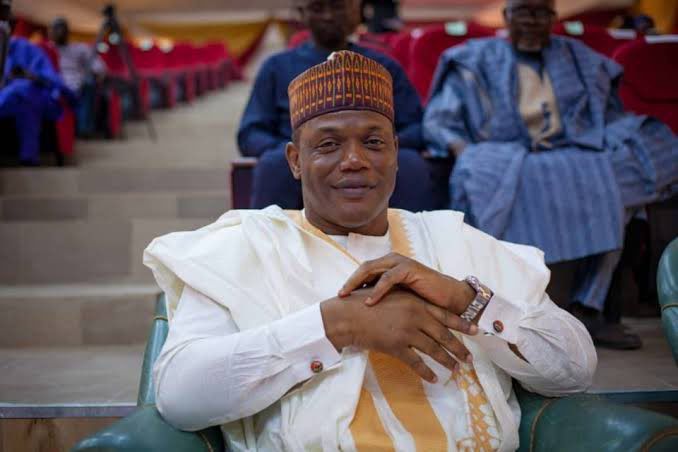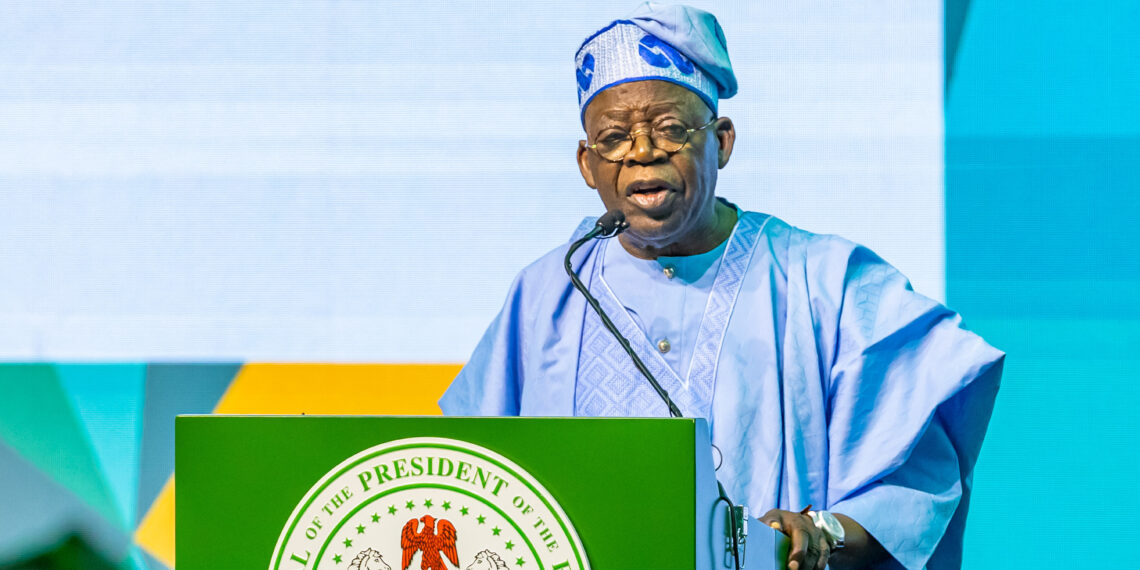The police have warned that they will not tolerate any kind of violence during the organised labour movement’s two-day protest against the nation’s problems and exorbitant cost of living.
As the Nigeria Labour Congress announced new requirements before to the start of the minimum wage negotiations on Monday (today), the police enforced the Riot Act on Sunday.
The African Development Bank has expressed concern that rising fuel and commodity prices could trigger societal unrest in Nigeria, Ethiopia, Angola, and Kenya, which coincides with the police warning.
The AfDB sounded the warning in its macroeconomic performance and outlook for 2024 in which it projected Africa’s economy to grow higher than the 3.2 per cent recorded in 2023.
The AfDB projected that growth on the continent will rebound to 3.8 per cent in 2024.
However, the bank cautioned that an increase in fuel and commodity prices occasioned by currency depreciation or subsidy removal in Nigeria, Angola, Kenya, and Ethiopia could trigger internal conflicts.
It stated, “Internal conflicts and violence could also result from rising prices for fuel and other commodities due to weaker domestic currencies and reforms.
“For instance, the removal of fuel subsidies in Angola, Ethiopia, Kenya and Nigeria and the resulting social costs has led to social unrest driven by opposition to government policy.”
On February 8, the Nigeria Labour Congress and the Trade Union Congress gave a two-week ultimatum to the government to implement the agreements on palliatives for workers to mitigate the impact of the fuel subsidy removal and other policies reached last October.
The unions said they had mobilised their members for the nationwide protests slated for February 27 and 28.
The organised labour lamented that millions of Nigerian workers were facing hunger, erosion of purchasing power, and insecurity due to reforms that drove up inflation.
The NLC National President, Joe Ajaero, said the protest would begin a week after the expiration of the 14-day ultimatum it issued to the Federal Government which will expire on February 23.
Ajaero, who spoke during a briefing with journalists in Abuja, said the decision followed an emergency National Executive Council meeting on the state of the economy and matters related to insecurity in the country.
It was earlier reported that organized labour was prepared to lower its demand for N1m minimum wage for workers in the country in line with realities on the ground which include high costs of living, inflation, naira devaluation, and the general economic shocks.
But the Head of Information of the NLC, Benson Upah, who spoke to one of our correspondents on Sunday, insisted that the committee must come up with a minimum wage that would reflect economic realities and address the hardship of workers.
Asked about the committee, which would begin its sitting today, he said, “Our expectations are the national minimum wage negotiations and the conclusions will reflect the socio-economic realities of our times.”
Also, a top official of the NLC who spoke on the condition of anonymity because he was not authorised to speak on the issue,, said, “if the Federal Government wants to pay workers anything, anything the government is paying them that cannot take care of the workers is no longer salary, it is a poverty salary.”
He said, “A living wage is that wage that will take care of all the basic needs of the worker and also leave small things for savings for rainy days for the worker, that is why whatever the trade unions are going to demand is going to be scientifically determined,” he said.
He stated, ‘’It (the minimum wage) is going to be based on the cost of living. It will be based on the objective reality that the Nigerian worker encounters daily. How much does it take to care for an average family in Nigeria? That is a family that consists of two parents and four children.
He said, “The Nigeria Labour Congress, already last month sent out questionnaires to all the state councils in Nigeria and the state councils have also sent the questionnaires to all the local governments in the 774 local governments in Nigeria to obtain what it cost them to take care of their basic needs.
“The consumer price Index is also one of the factors that the NLC is using. Then we are also looking at real wages. In essence, the N30,000 minimum wage that was paid in 2019, what is the real value of that N30,000 in 2024?” he said.
Ahead of the protests, the Lagos State Commissioner of Police, Adegoke Fayoade, on Sunday, held a meeting with labour leaders at the command headquarters.
The state Police Public Relations Officer, Benjamin Hundeyin, who disclosed this to one of our correspondents, said the union gave an assurance that the protest would be carried out within the ambit of the law.
He added that a team of policemen would be on the ground to maintain law and order.
Hundeyin stated, “We have no fears. The Commissioner of Police met with NLC and TUC today and we had a lengthy discussion. We are certain that there won’t be a breakdown of law and order.
‘’But notwithstanding, we will be on the ground to ensure that there is no breakdown of law and order.”
Ogun State Commissioner of Police, Abiodun Alamutu, on Sunday, said he would be meeting with the labour leaders in the state on Monday (today) over the protest.
Alamutu said this was to ensure that the police and the labour leaders were on the same page to prevent the ally from being hijacked by hoodlums.
He said, “The meeting is to essentially have the guidelines so that no criminal infiltrates their rank during their procession. The law also allows for members of the public to carry on with their legitimate business whenever there is such a protest. The meeting essentially will be to ensure that nothing goes wrong during the protest.”
The Katsina State Police command said it has the responsibility to protect the lives and property of the citizens.
The Command spokesman, Abubakar Aliyu, enjoined the organised Labour to be peaceful during the protests.
“The police command has the responsibility to ensure the safety of lives and property. We enjoin the leadership of the organised Labour to ensure that its members go about their activities peacefully.”
On his part, the spokesman for Sokoto State command, Ahmed Rufai, admonished labour leaders in the state to be orderly during the protests.
He said the command would ensure the protest was not hijacked by hoodlums.
“I will advise them to be orderly in the protest; we all know peaceful protest is guaranteed under our constitution but we just have to be orderly.
“They should not allow anyone among them to carry any arms or anything that can cause injury to anyone. Such a protest should be within the template of the law. We as law enforcement agencies will be there to ensure the protest is not hijacked by hoodlums or miscreants,” he said.
On his part, Delta State Police Command’s spokesman, Bright Edafe, told The PUNCH correspondent that “the state commissioner of police has directed the operations department to draw up an operational order”.
“Every nook and cranny of the command will be fortified with the presence of policeman, to ensure that there will be no room for anybody or group to hijack the protest”, the PPRO stated.
Meanwhile, workers across several states have complained about the economic crunch they were facing and the failure of the state governments to cushion the pains with palliatives.
In Enugu State, the Trade Union Congress disclosed that apart from the N25,000 award the state started paying workers in December, the workers have not received any other form of palliatives to cushion the effects of the current economic crunch.
The state Chairman of TUC, Ben Asogwa, said that N10,000 was added to the salaries of local government workers for December and January.
Asogwa explained that the award payment is expected to be paid till April when the new minimum wage might come on stream.
He regretted that the pensioners and the informal sector in the state weren’t covered by the palliatives “because there was no harmonization.’’
He said, “In Enugu State, some pensioners are receiving as low as N1,000 and below as monthly pension. It is regrettable and it is unacceptable. Even those receiving the minimum wage is done by an adjustment which local government workers only got 25 per cent of N30,000 added to their salary.”
“What I can tell you authoritatively is that apart from the N25,000 awarded to civil servants and N10,000 awarded to local government workers which payment started in December there were no other palliatives given to workers.
“Even this payment didn’t cover pensioners. Again we discovered that the material palliatives were full of fraudulent practices. The government will tell you they bought five trailers load of rice for instance but you will not see where these items were distributed.
Often, after taking pictures, they will return it to where they allegedly procured it, or even divert it.”
The state Commissioner for Information, Mr Aka Eze didn’t respond to a request for reaction when contacted on Sunday.
He said he was driving and promised to respond but he had yet to do so as of the time of filing this report.
Benue State Government said it had commenced the implementation of the N30,000 minimum wage to its workers in 2021.
However, the payment, implemented by the immediate past administration of Samuel Ortom, was made only to workers from grade level 06 downward.
The state NLC Chairman, Terungwa Igbe, said workers from level 07 and above are yet to benefit from the wage.
He said, “The N30,000 minimum wage began with workers from level 06 downward while other workers were yet to enjoy the minimum wage because of the consequential adjustment the former governor proposed but which was rejected.
‘’The proposed consequential adjustment then was a meagre amount of N500 to N1,000 for workers from grade level 07 and above but was turned down.’’
Since the assumption of office by the present administration, the NLC chairman said that the issue had yet to be discussed.
Apart from the grains distributed by the state government last in December, the TUC Chairman in Benue State, Gideon Akaa, asserted that nothing else had been given to the people.
Akaa said no union leader was involved in the sharing of palliatives with the people of the state, noting that he heard from the media about the money shared with the state by the Federal Government.
He added, “We don’t know if the state government has given any palliatives to people in the state because in all these things we were not involved.
“We only heard from the media how the state government planned to use its share of the Federal Government as palliatives. For instance, the governor promised to purchase 100 vehicles for the state transport company and also to pay for the external examination fees for Senior Secondary School students in the state.’’
Akaa noted that the state government has yet to implement the wage award that was promised to workers.
Speaking on the palliatives, the Chief Press Secretary to the governor, Kula Tersoo, stated that the government would pay the examination fees directly to the examination bodies before the February 20th deadline.
He said, “Governor Alia’s administration has reached an agreement with WAEC, NECO, and NABTEB to pay the external examination fees as promised and this will be done before the February 20th closing date. The money is not going through any school principal.”
For the civil servants in Katsina State, the economic crunch has been mitigated by the various palliatives from the state government.
The state TUC Chairman, Mallam Muntari Ruma, said each worker in January received a N15,000 special palliative allowance, noting that payment of the allowance would continue until the promulgation of the new Minimum Wage Act.
“Civil servants in the state will continue to receive this special palliative allowance until we resolve all issues concerning the payment of the new minimum wage,” Ruma said.
He also revealed that the state government had released N200m m revolving loan for civil servants. This was in addition to the N250m previously released by the state.
Ruma further revealed that the government released 5,000kg bags of rice and 900 bags (100 kg) of maize, adding that the distribution of the items will begin this week.
The TUC Chairman in Ogun State, Akeem Lasisi, affirmed that the workforce in the state has received a 40 per cent pay rise as well as N10,000 monthly palliatives.
Lasisi said, “As part of efforts by the state government to lessen the pains of the fuel subsidy removal on the workers, we were given 40 per cent of the basic salary starting from September 2023; N10,000 monthly palliatives from July 2023; Christmas bonus in December ranging from N20,000 from level 01 to N100,000 for level 15-17.”
The Secretary of the Nigeria Union of Pensioners, Dr Bola Lawal, also confirmed the payment of N10,000 monthly palliative to the pensioners in the state, adding that he has been receiving it for the past four months.
Lawal said that a few of the pensioners equally benefited from the food palliatives of the state government.
However, Mrs Dorcas Oladipo of Oke Ilewo, said she did not receive any food palliatives from the government.
“I am a teacher in one of the private schools; I have gotten nothing in the form of palliative from the government. We have been trusting in the Lord and we thank God for his grace has been sufficient for us,” she said.
Mr Samuel Tijani, a resident of Ilisan Remo, did not benefit from the palliatives just as he appealed to the government to lessen the pains of the fuel subsidy removal.
Tijani said, “I have received nothing in the name of palliatives from anyone since the crisis of this fuel subsidy removal began. I heard that the state government is planning to distribute another set of food palliatives soon. I sincerely hope that the government will ensure that it goes around this time.”
Credit: The Punch
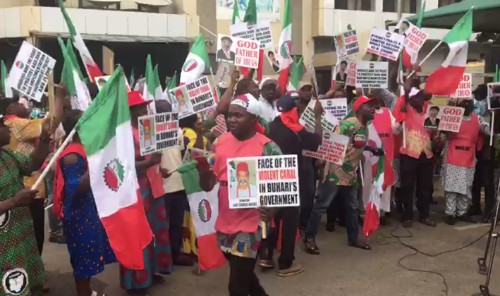

 BIG STORY5 days ago
BIG STORY5 days ago
 BIG STORY3 days ago
BIG STORY3 days ago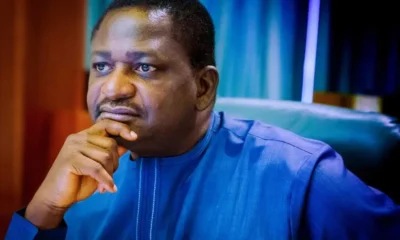
 BIG STORY4 days ago
BIG STORY4 days ago
 BIG STORY5 days ago
BIG STORY5 days ago
 BIG STORY4 days ago
BIG STORY4 days ago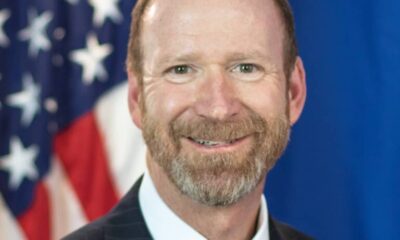
 BIG STORY4 days ago
BIG STORY4 days ago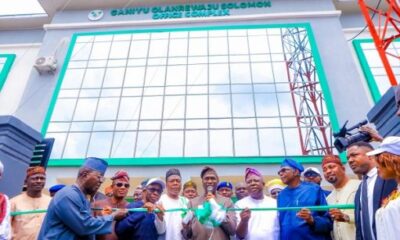
 BIG STORY4 days ago
BIG STORY4 days ago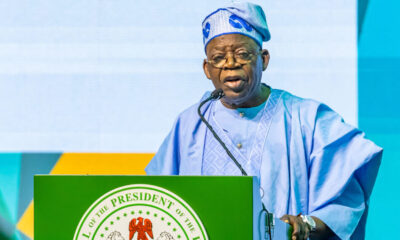
 BIG STORY13 hours ago
BIG STORY13 hours ago






